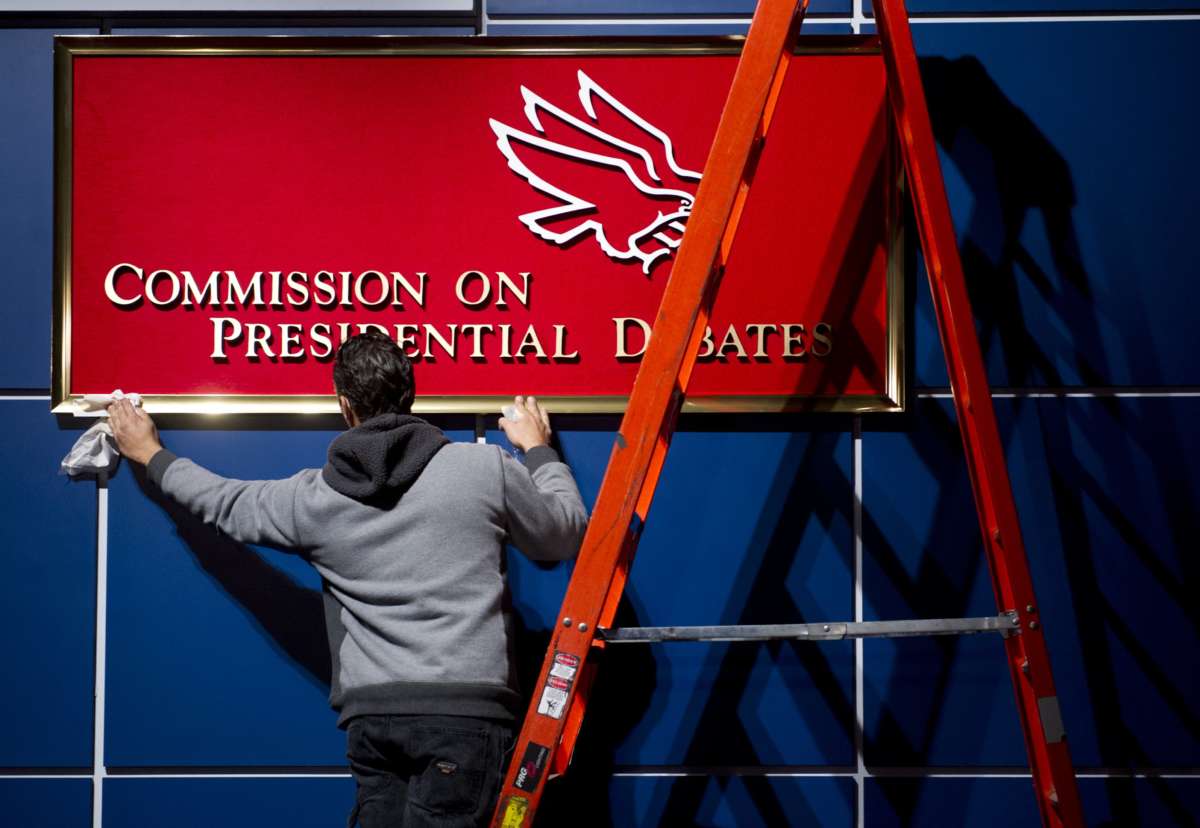The first debate between President Donald Trump and Democratic Party nominee Joe Biden will take place on Tuesday, September 29 — exactly five weeks from Election Day on November 3 — at Case Western Reserve University in Cleveland, Ohio.
Topics, which were determined by the debate’s moderator, Fox News’s Chris Wallace, were announced on Tuesday. Each topic will have a 15-minute time segment dedicated to it with a total of 90 minutes assigned for the entire debate.
The topics Wallace has picked for the candidates to discuss include:
- Trump’s and Biden’s records;
- The Supreme Court;
- The coronavirus pandemic;
- The economy
- “Race and violence in our cities”
- The integrity of the election itself.
The topics are not set in stone, however, as the Commission will allow for changes to happen if events between today and next week warrant their discussion in the first debate.
Both Trump and Biden will likely tell you they’re the best candidate in terms of each of the topics listed — but in terms of polling, on most of the issues it appears that, as of this moment in the campaign season, the incumbent president has a lot of ground to make up.
Trump does better than Biden on the issue of the economy, according to a recent NPR/PBS NewsHour/Marist poll. On that topic, only 43 percent of voters think Biden could do a better job than Trump, whereas 50 percent of voters give Trump higher marks.
But the president fares much worse, compared to his Democratic challenger, on a number of the other issues that are set to be discussed at next week’s debate. On race relations, for example, 56 percent of Americans think Biden would be a better leader, while only 35 percent say that Trump would be.
On how the two candidates would handle the coronavirus pandemic, Trump again fares worse than Biden. Only 39 percent say the current president would do a better job on the issue, but 52 percent say Biden would do better at responding to the crisis that has seen more than 200,000 Americans die so far under Trump’s watch.
Overall, according to the NPR/PBS NewsHour/Marist poll, when asked who they would vote for today, respondents favored Biden by a margin of 10 percent, with 52 percent saying they’d vote for Biden versus 42 percent who say they’d back Trump.
Of course, national polling data does not give us a clear indication of who will win the election, as the Electoral College is the true determiner of who will serve as president for the next four years starting at noon on January 20 next year. On that measure, however, according to some forecasters, it’s still not looking great for Trump, with 42 days left until Election Day.
In spite of those predictions, Americans overall are not confident about who is going to win the presidential race. According to a recent Economist/YouGov poll, just 39 percent believe Biden will win in November, with 40 percent saying Trump will go on to a second term in office.
In short, both candidates are likely looking at the debates, beginning with the first one next week, as being important in helping them to win in the end — even if, as some observers have noted, debates don’t actually do much to shape the outcome of an election.
Join us in defending the truth before it’s too late
The future of independent journalism is uncertain, and the consequences of losing it are too grave to ignore. To ensure Truthout remains safe, strong, and free, we need to raise $33,000 in the next 2 days. Every dollar raised goes directly toward the costs of producing news you can trust.
Please give what you can — because by supporting us with a tax-deductible donation, you’re not just preserving a source of news, you’re helping to safeguard what’s left of our democracy.
